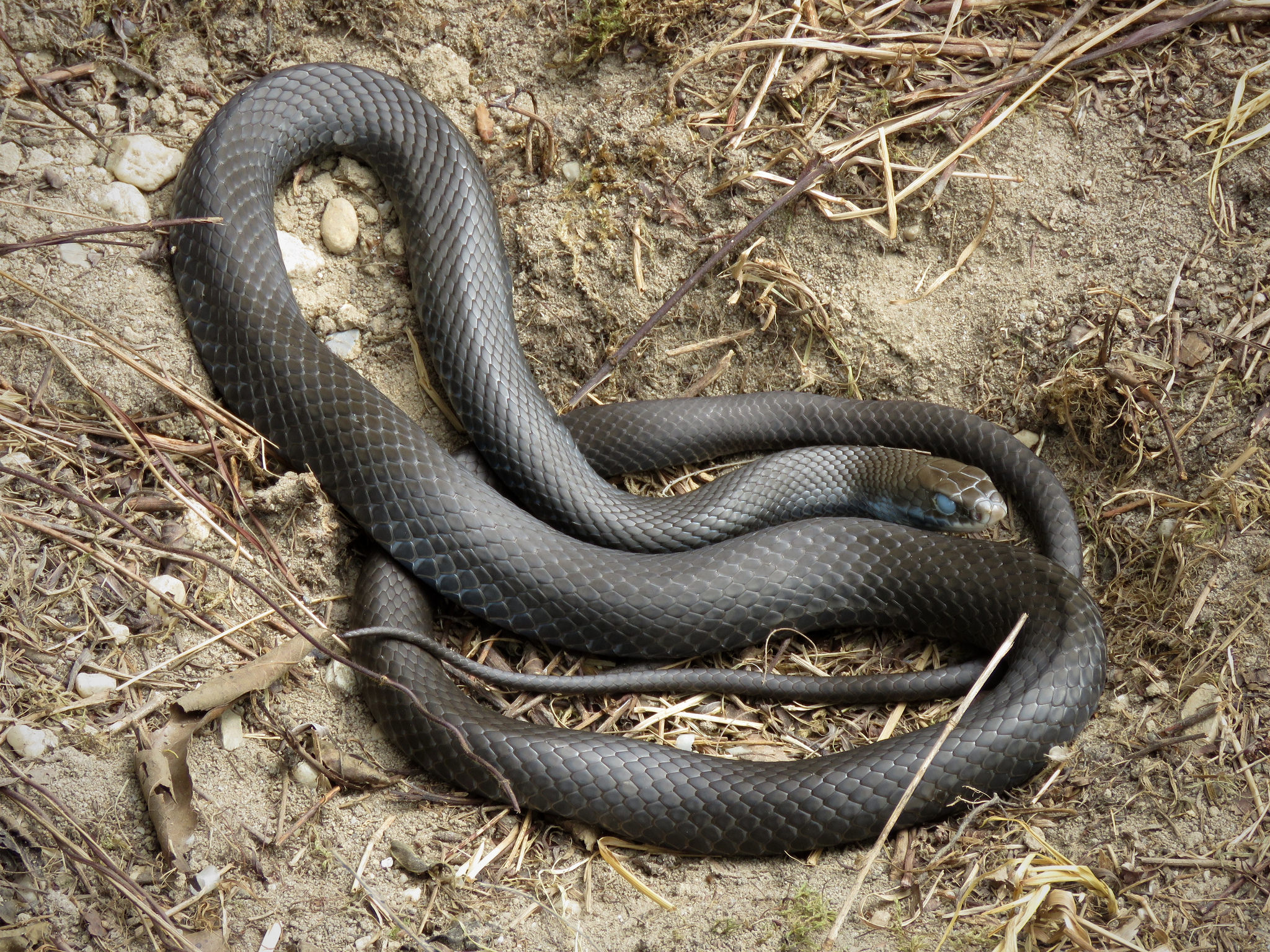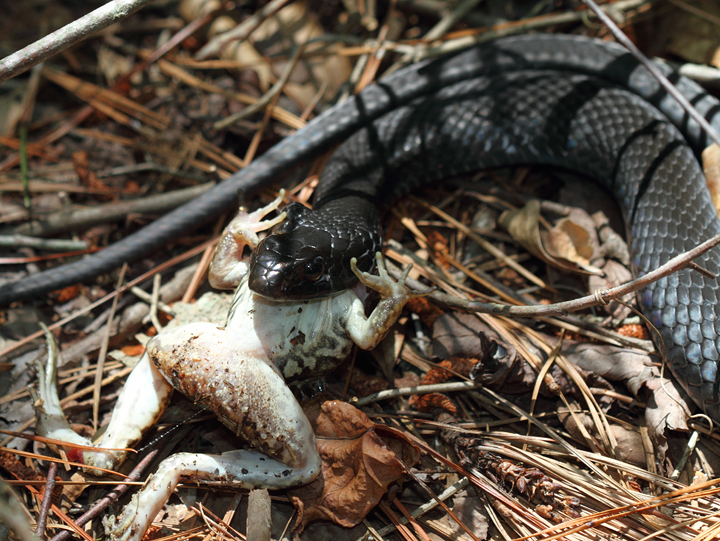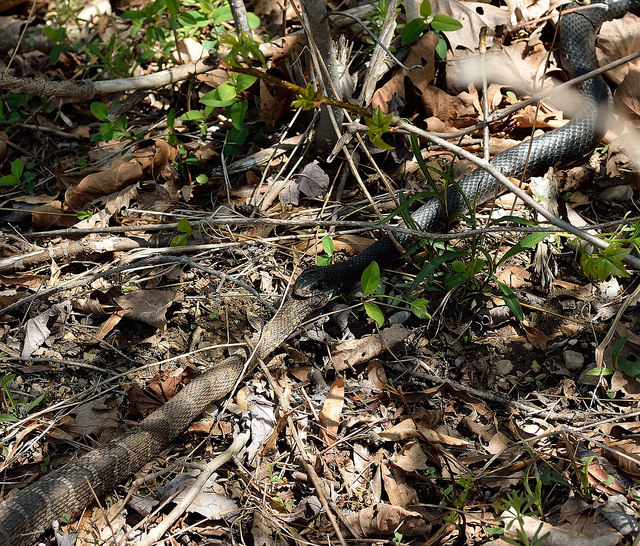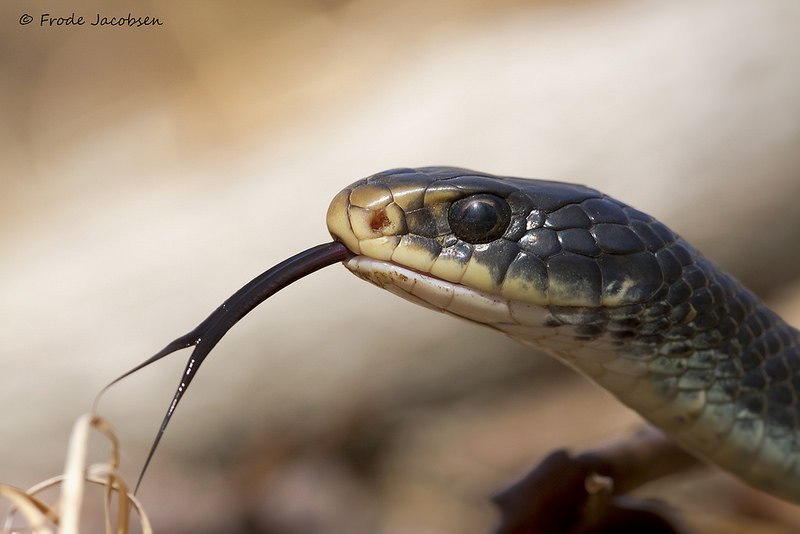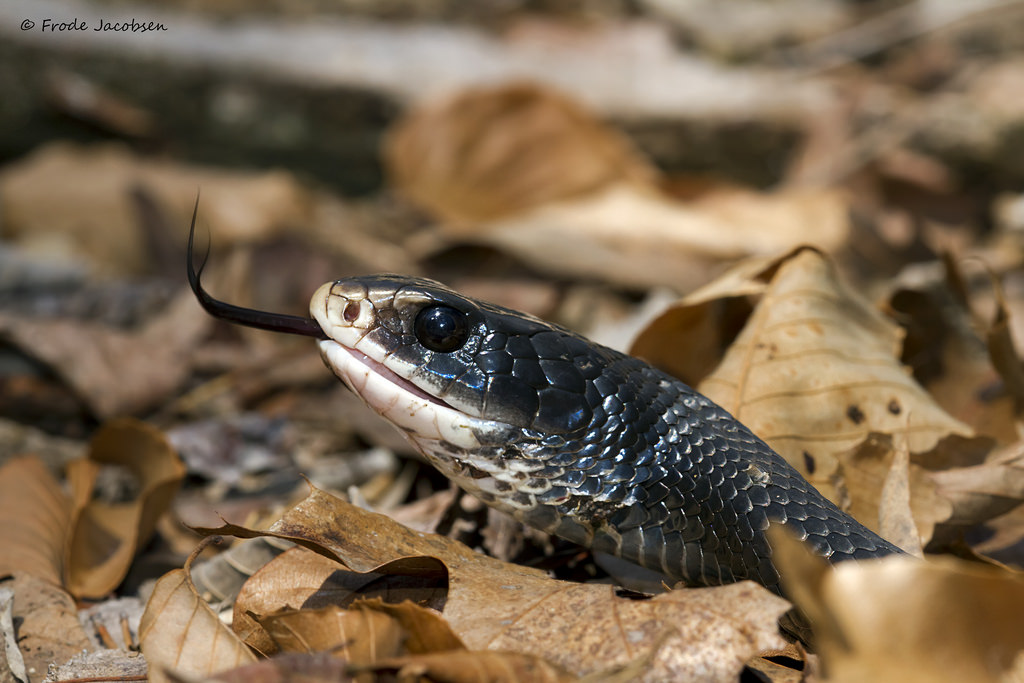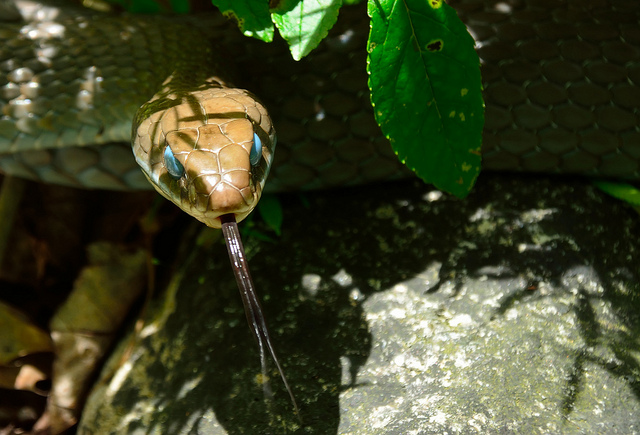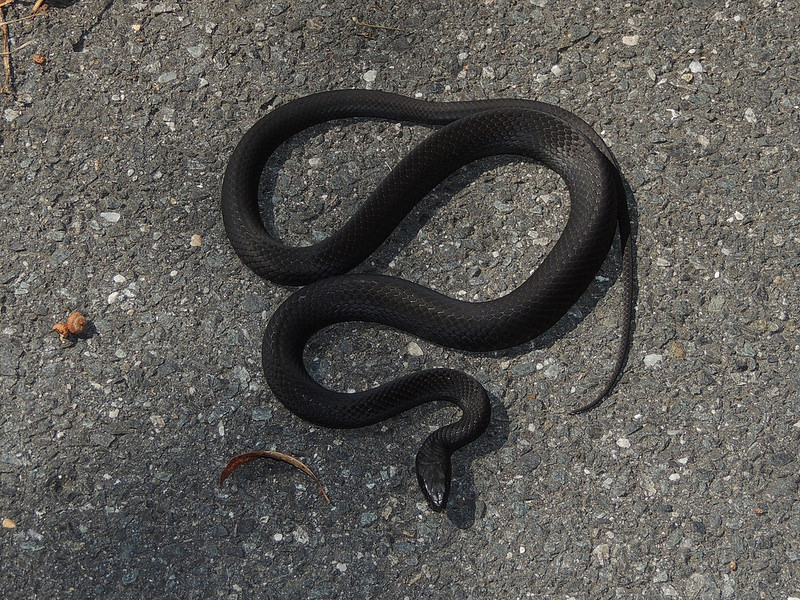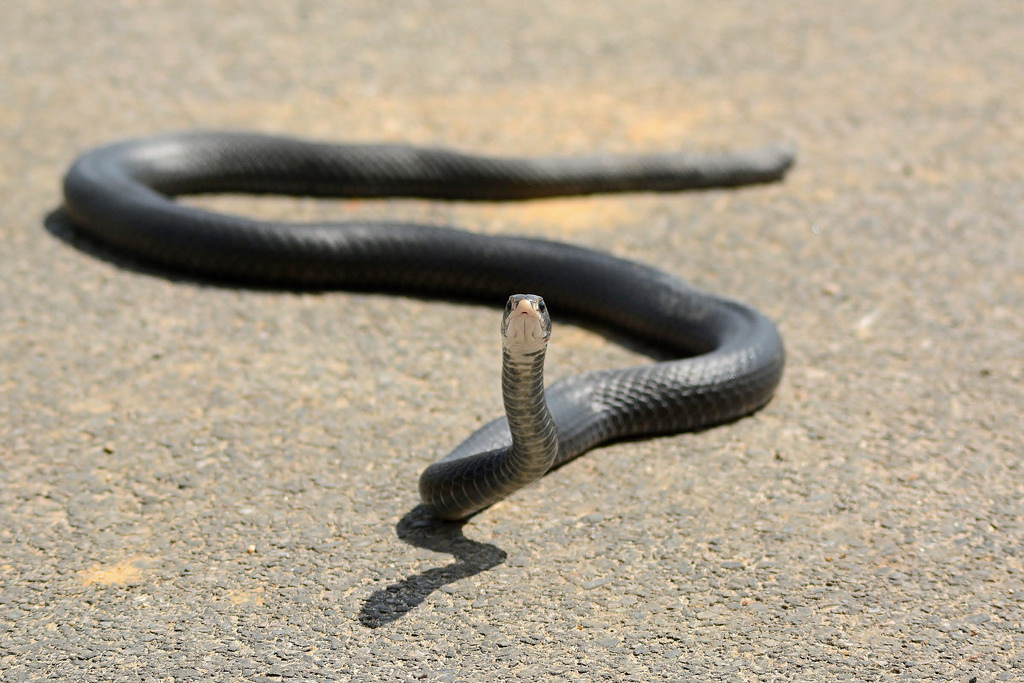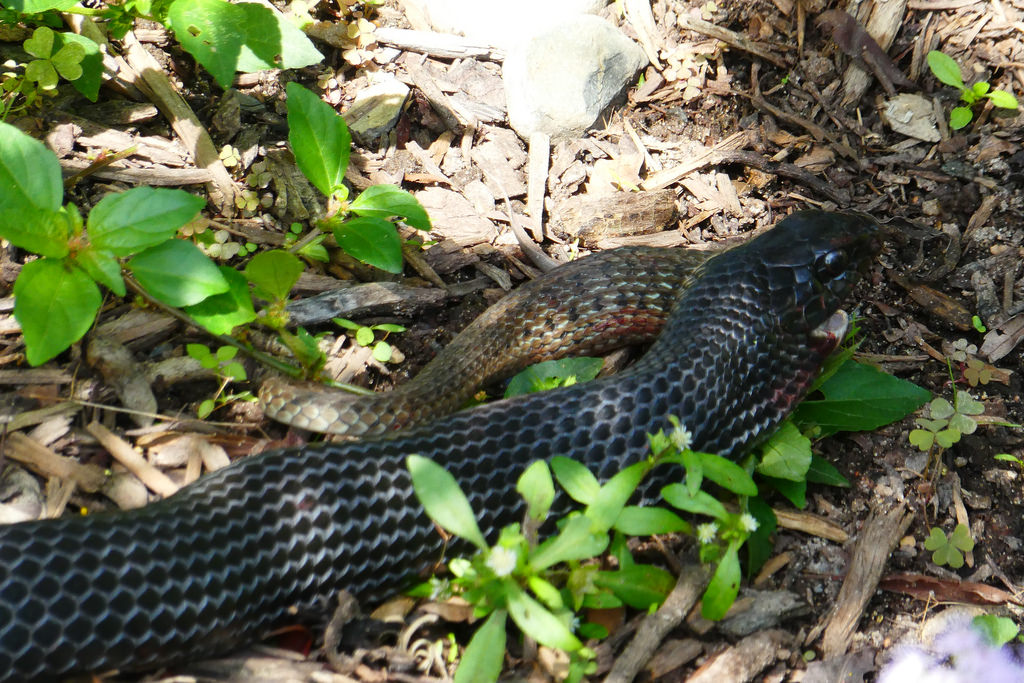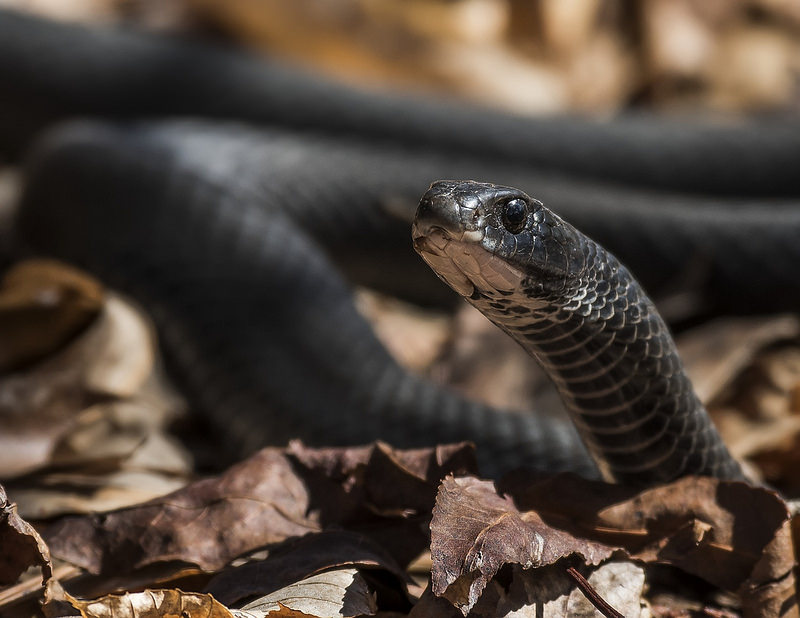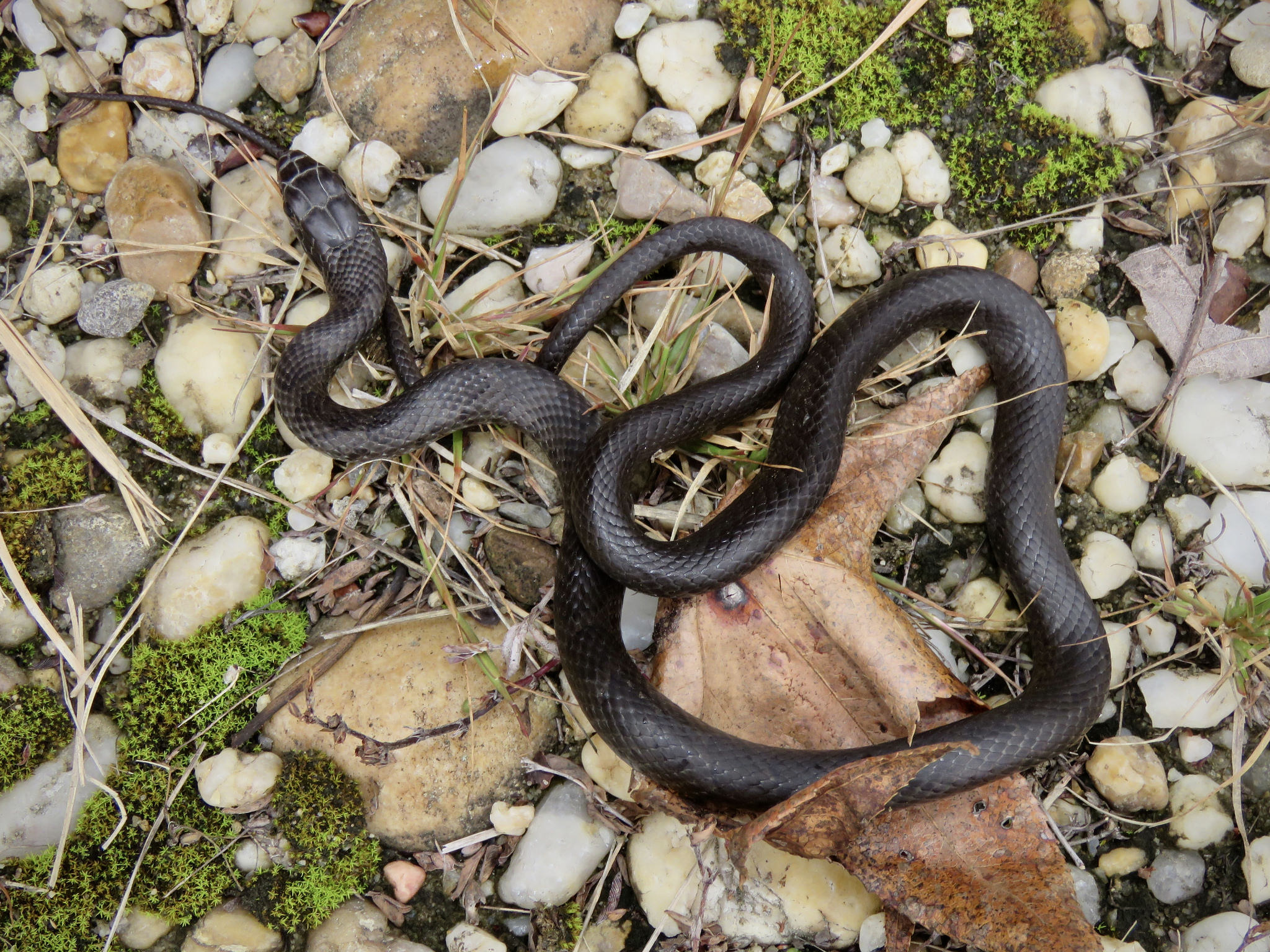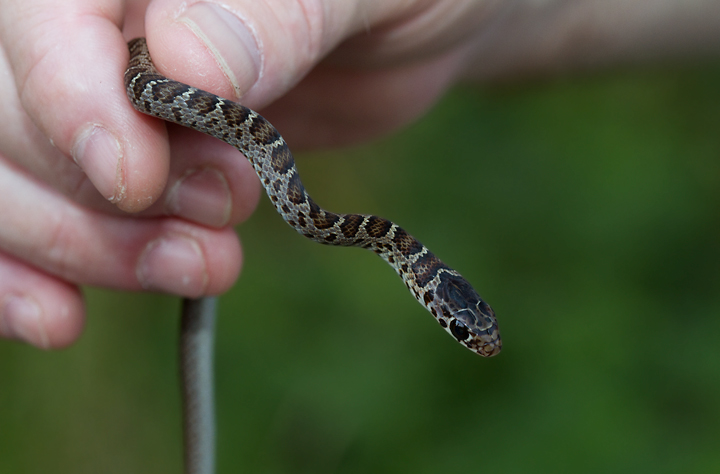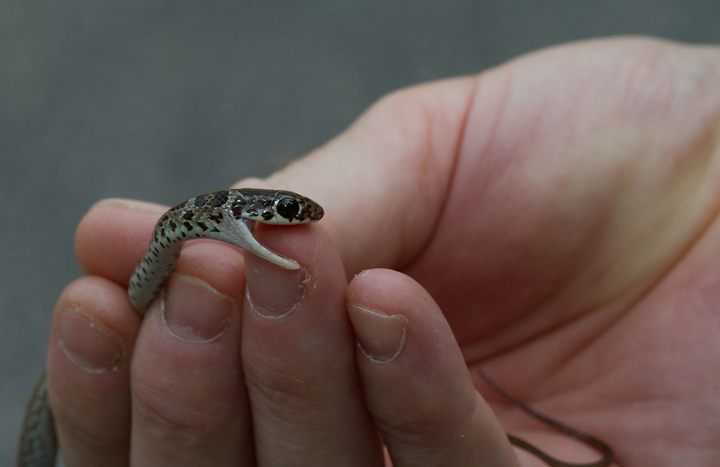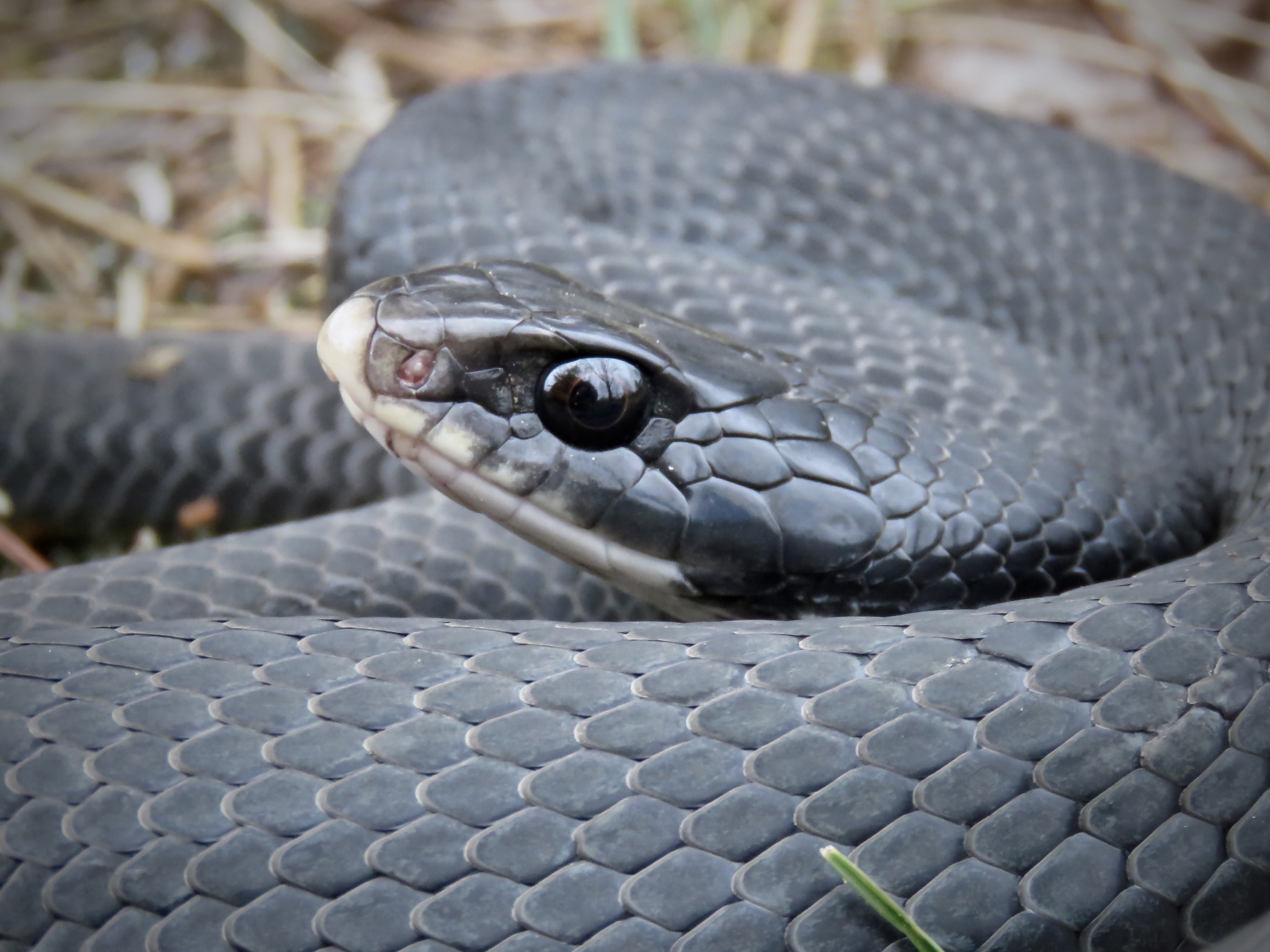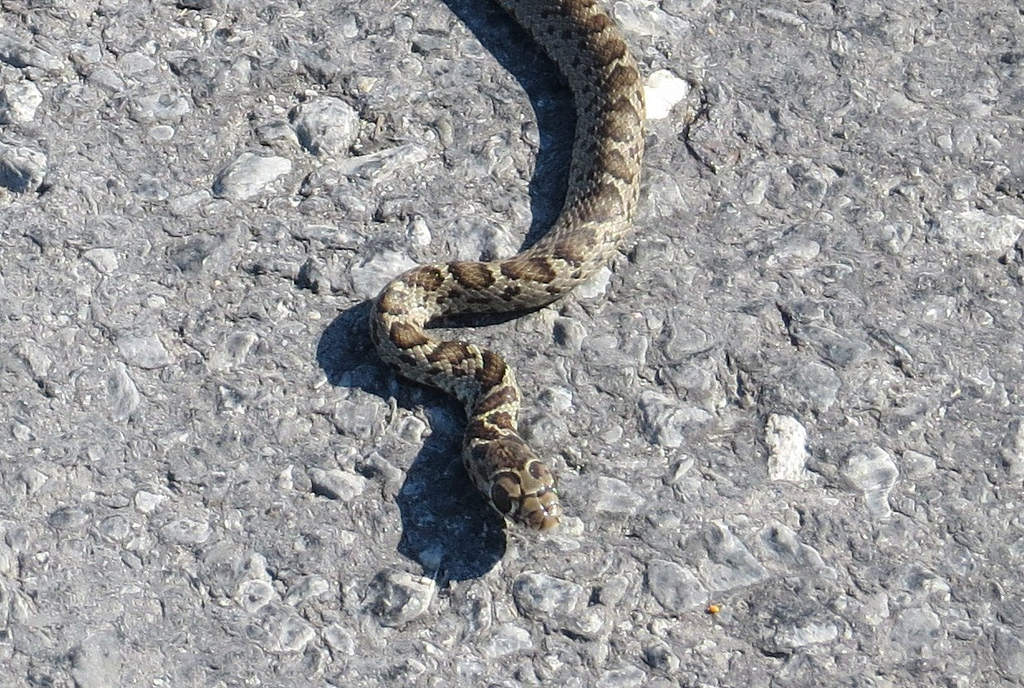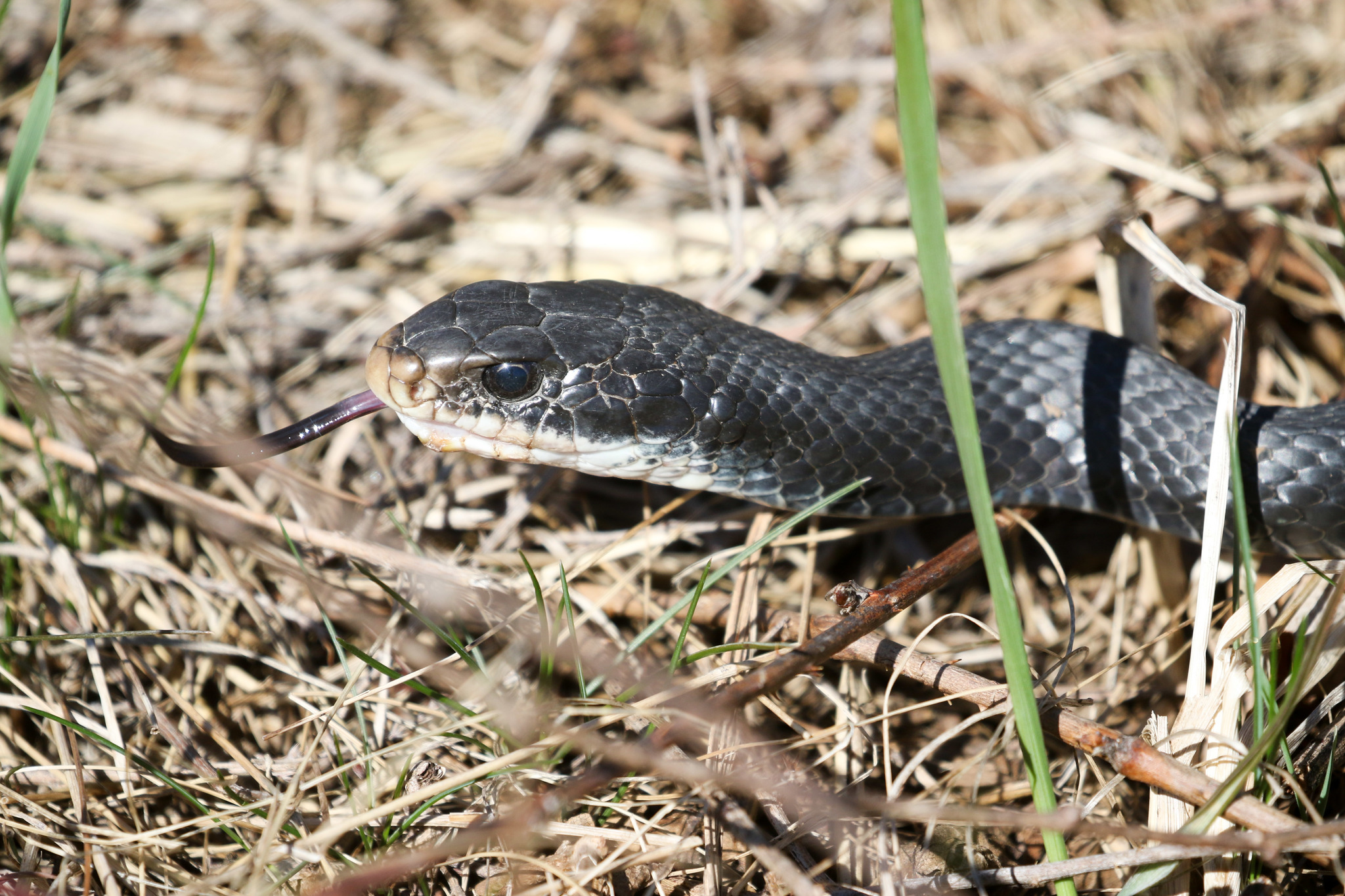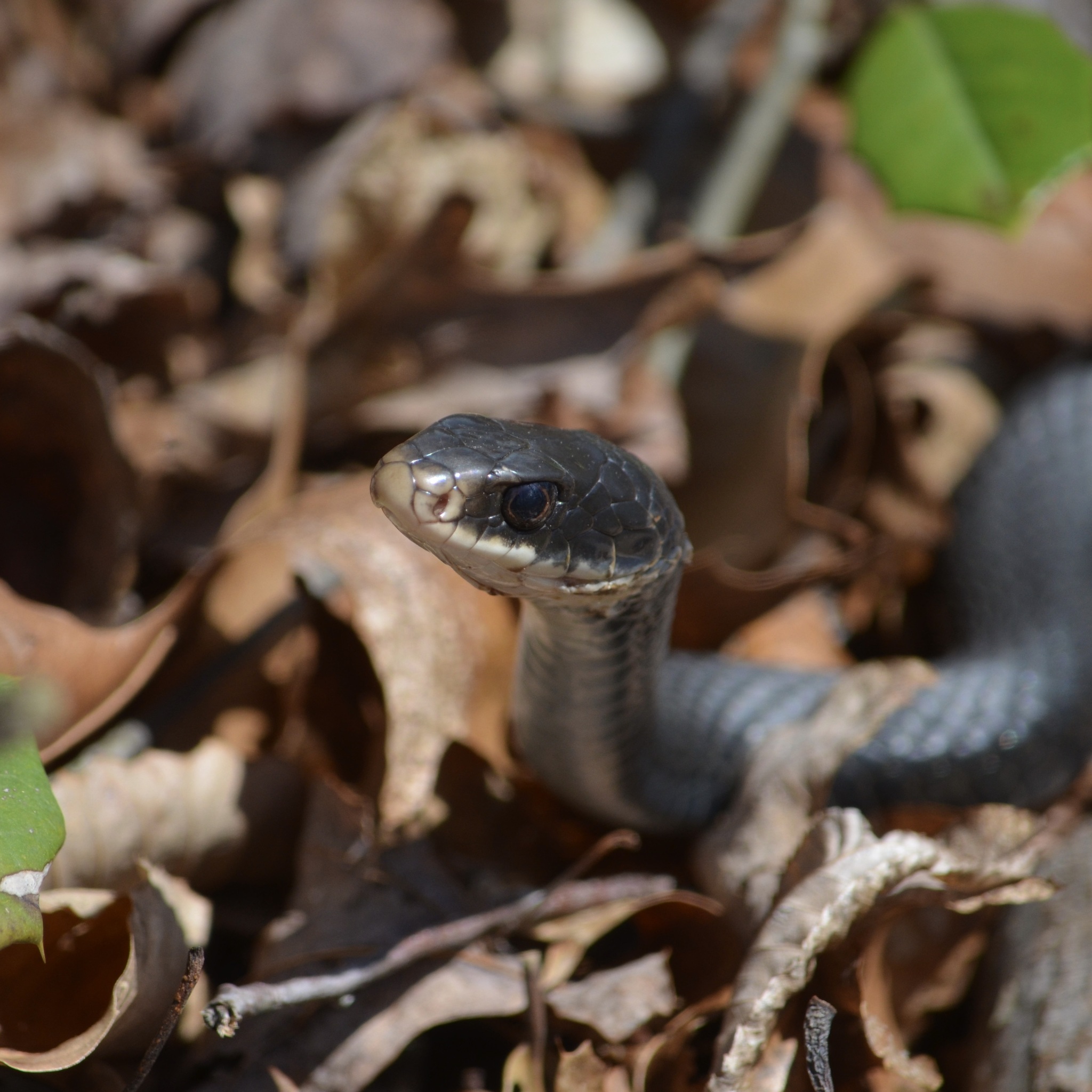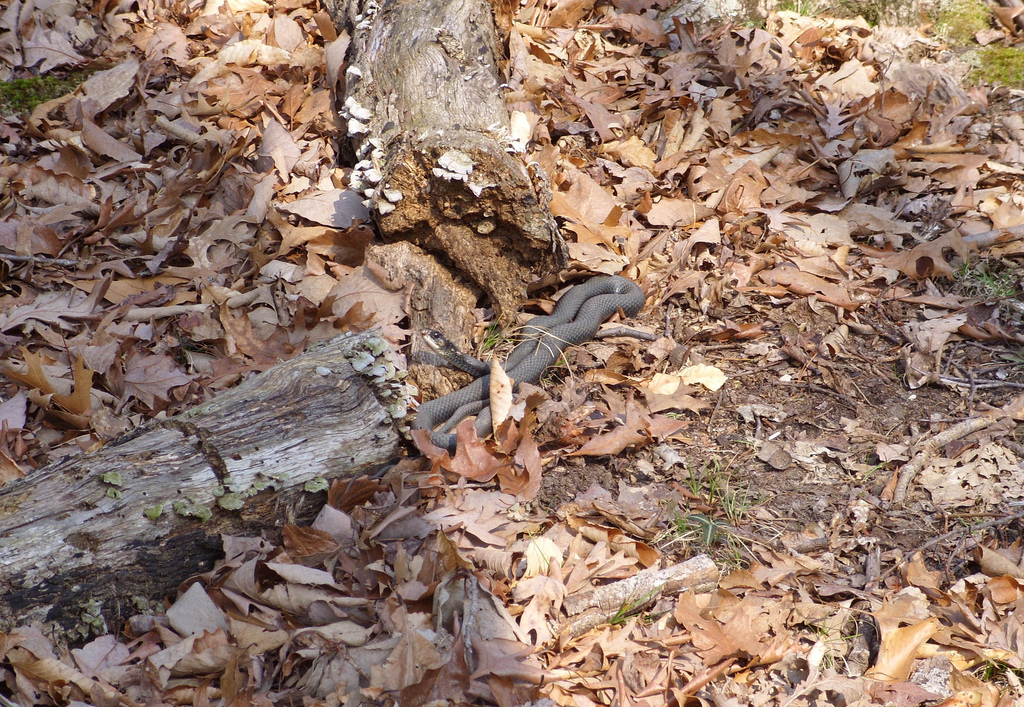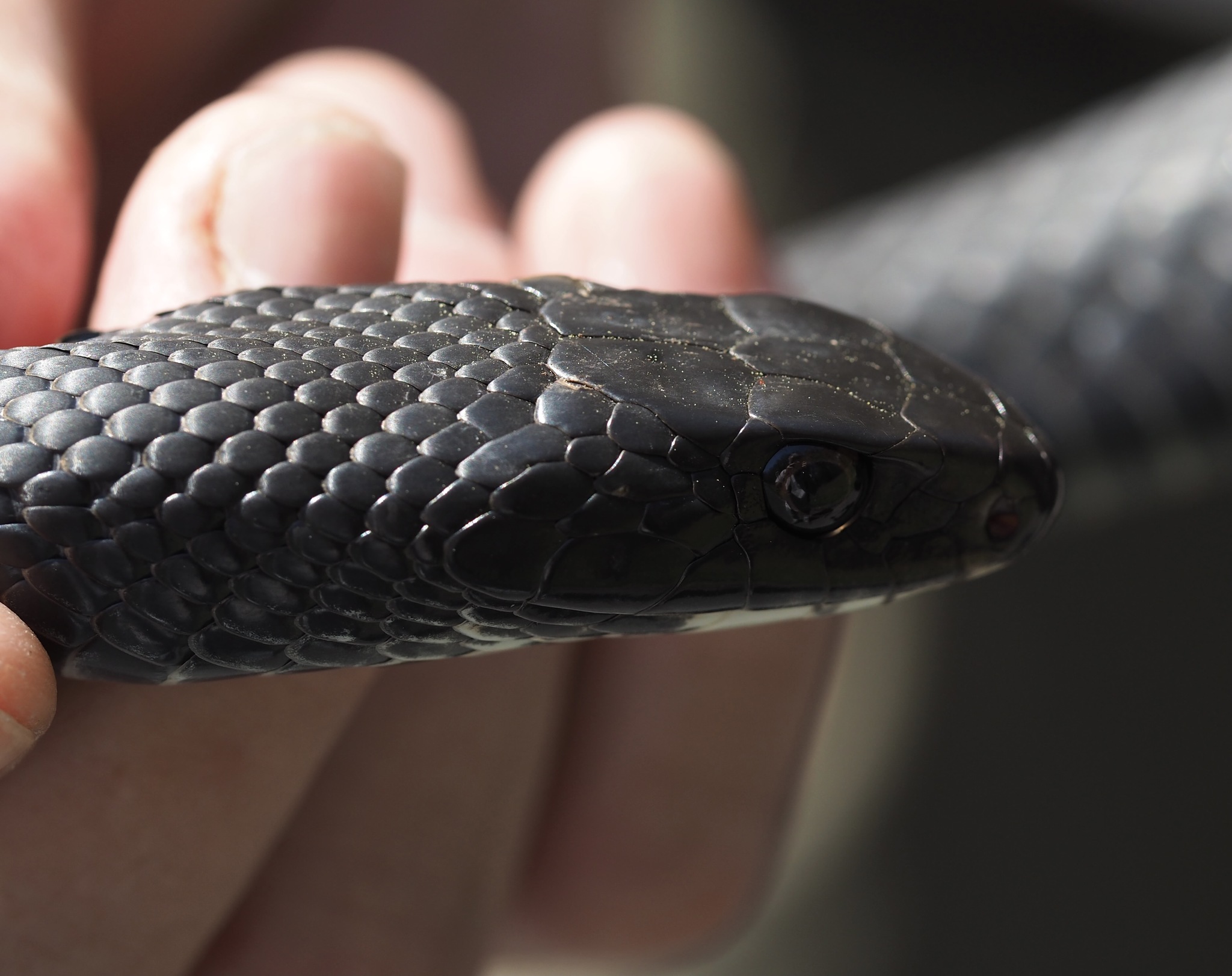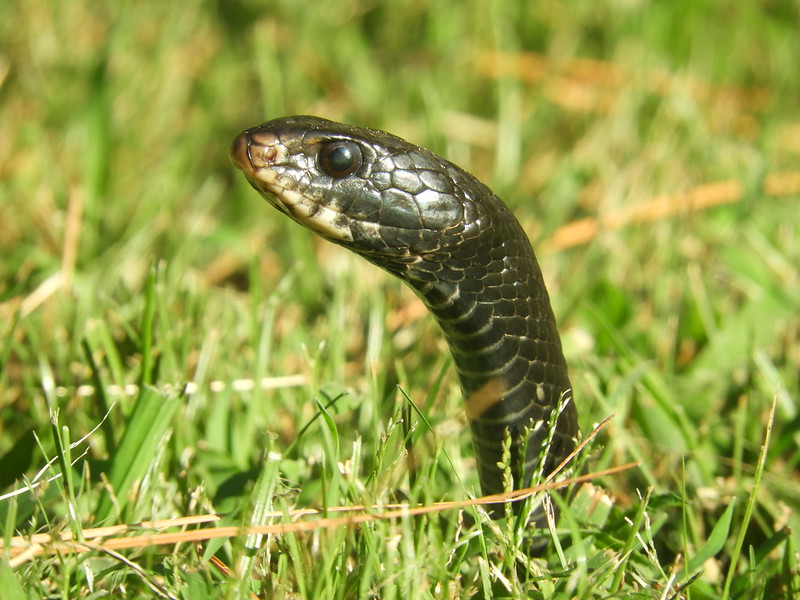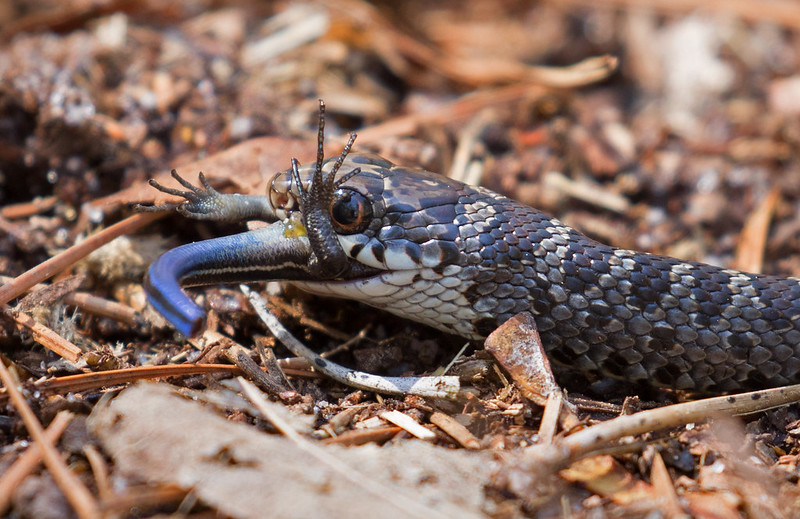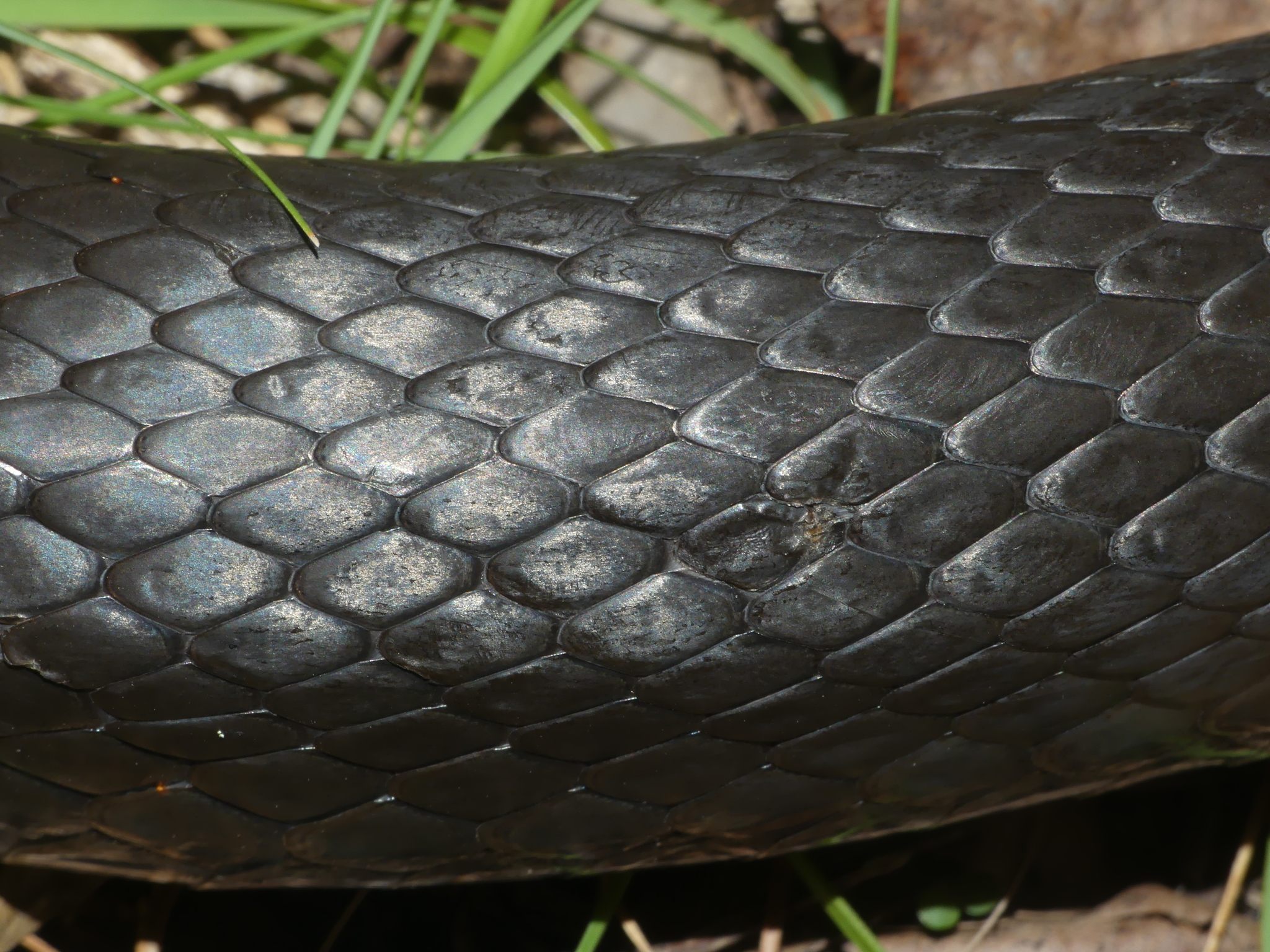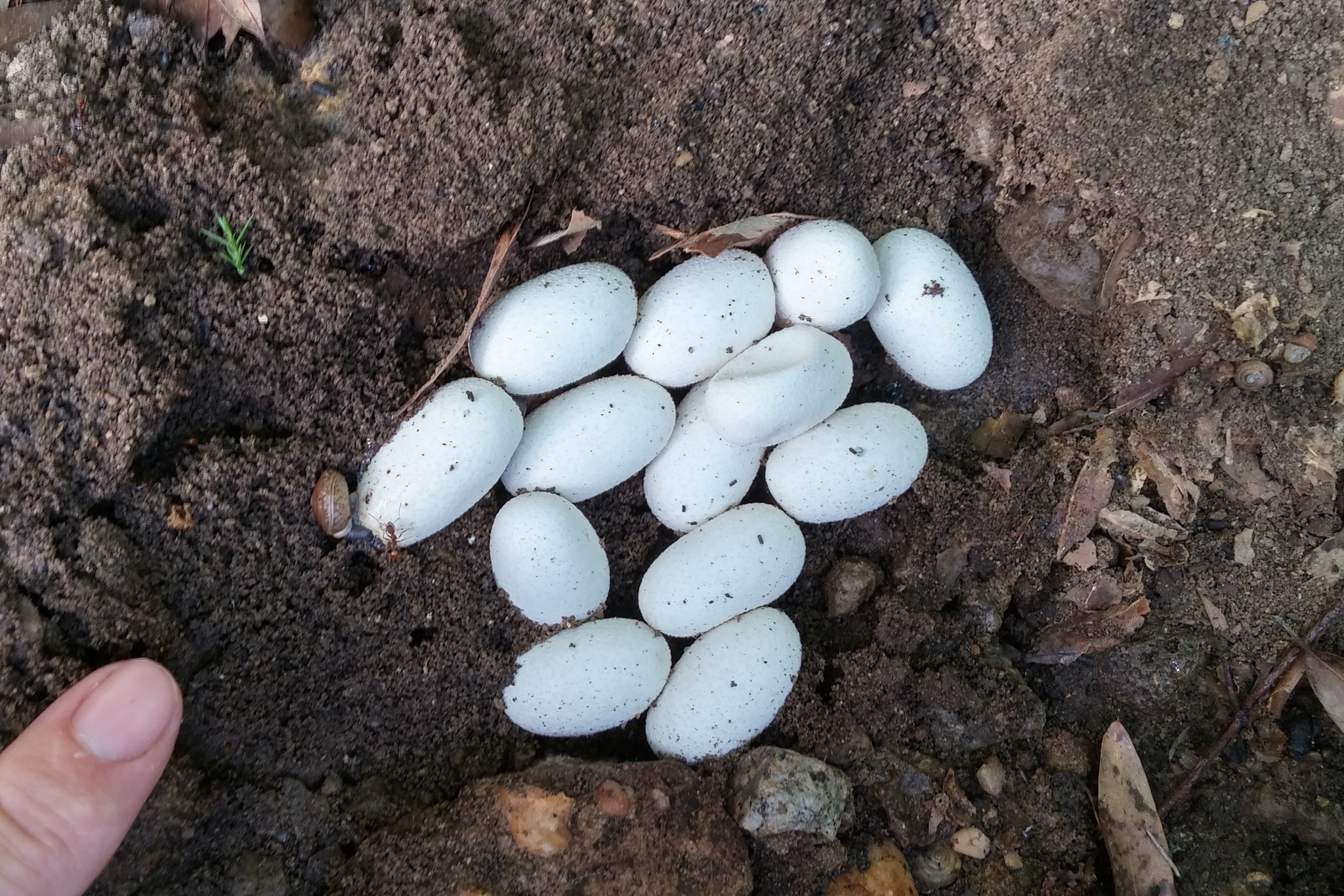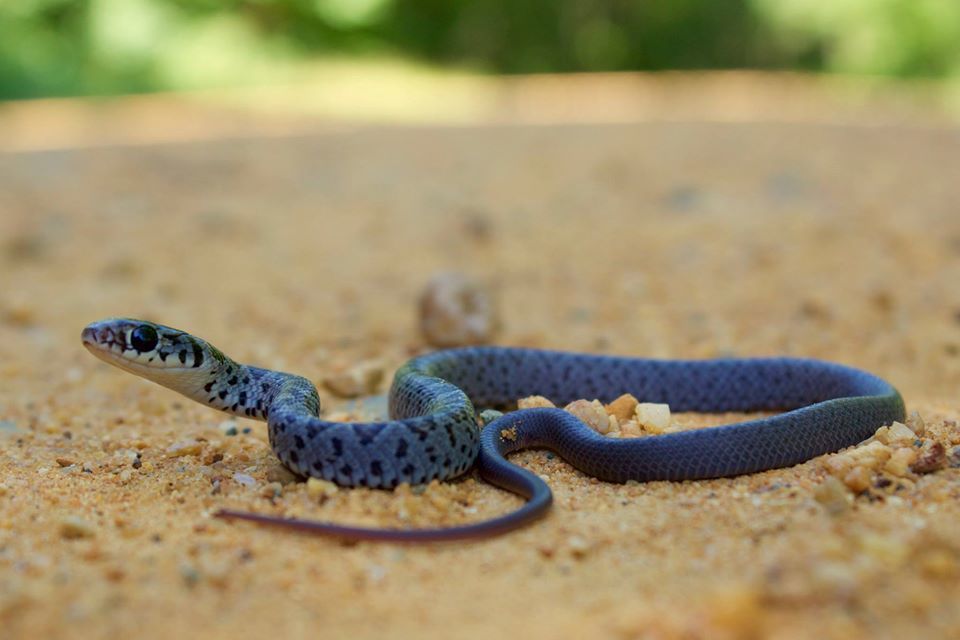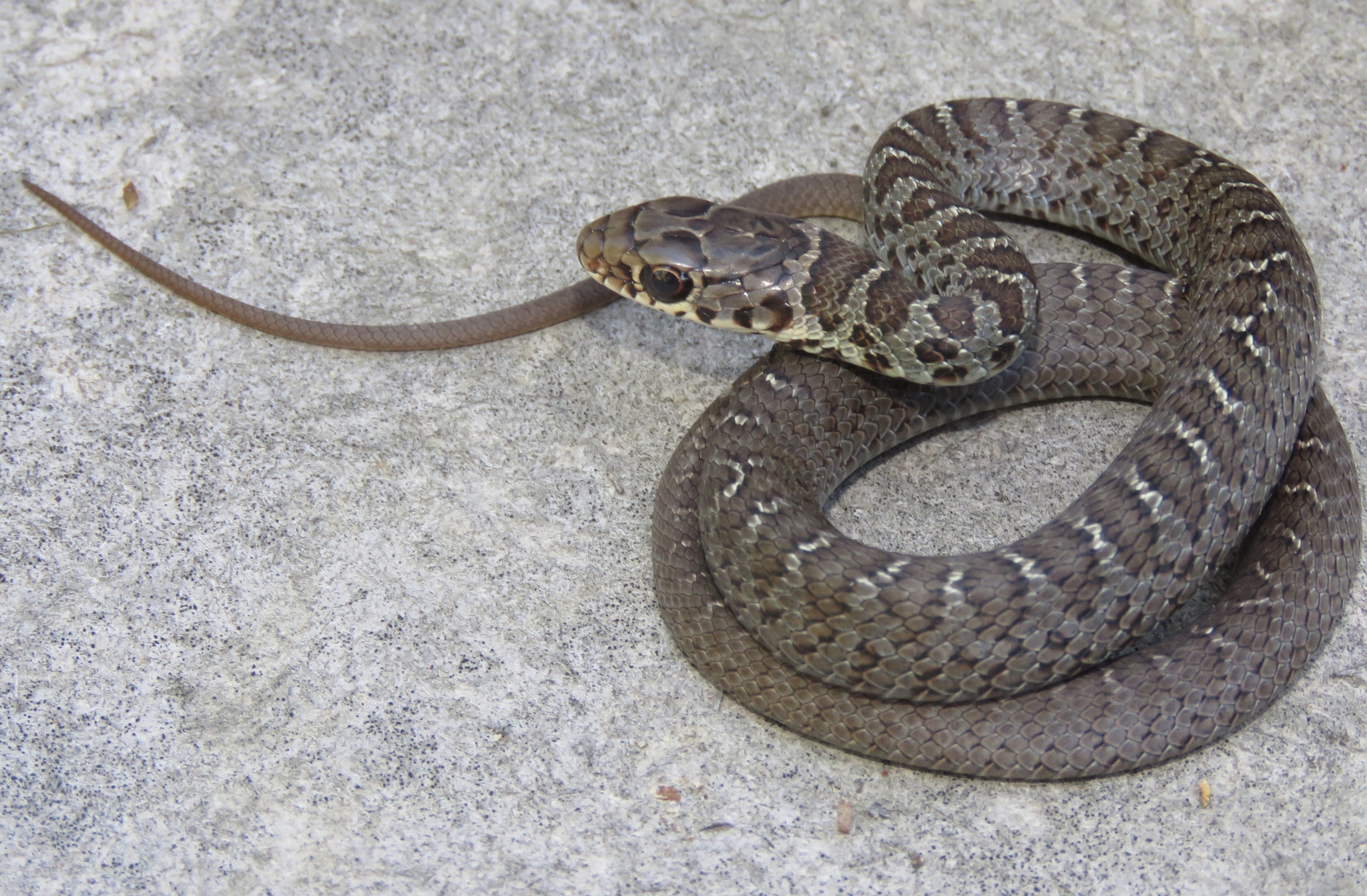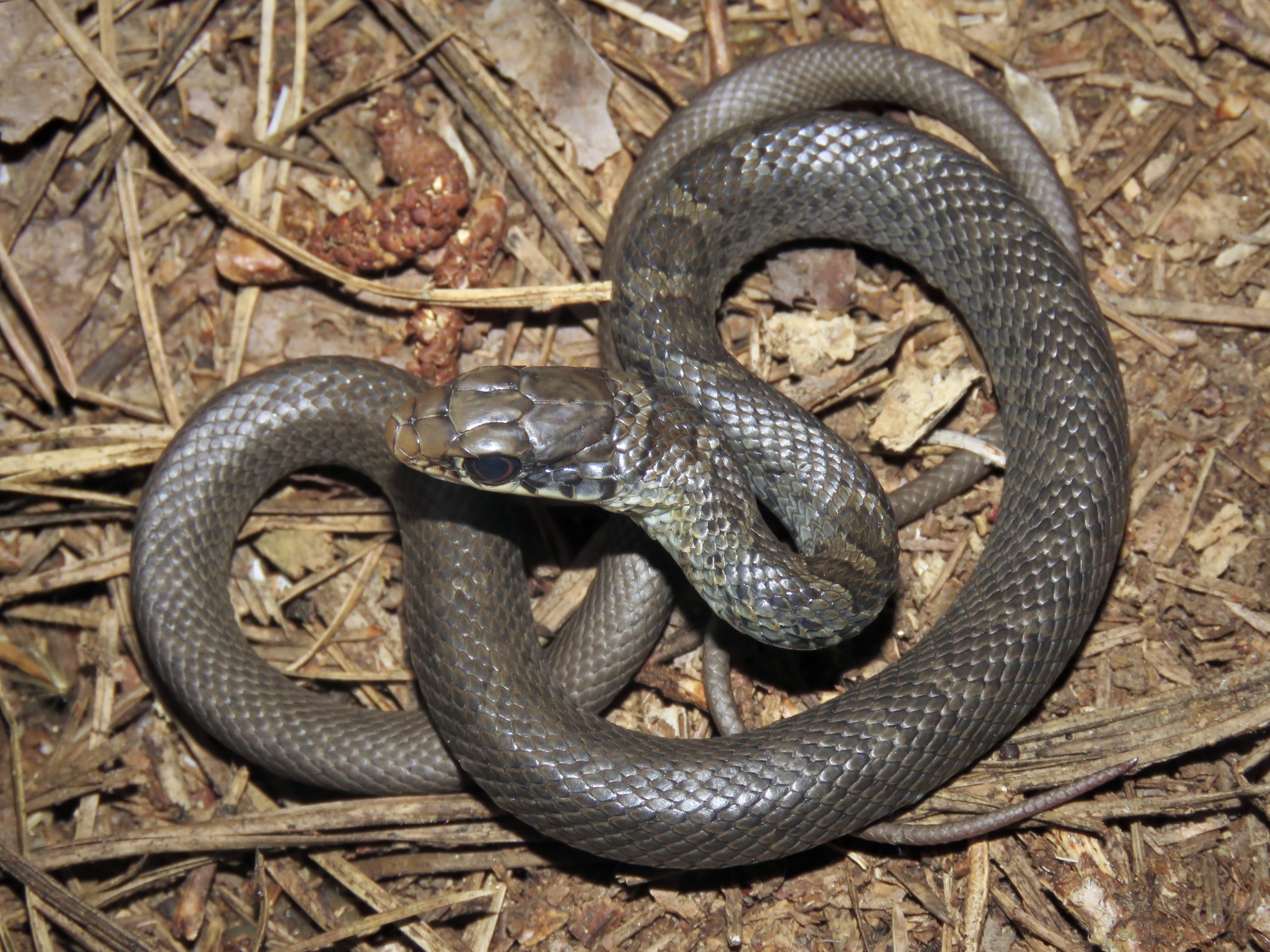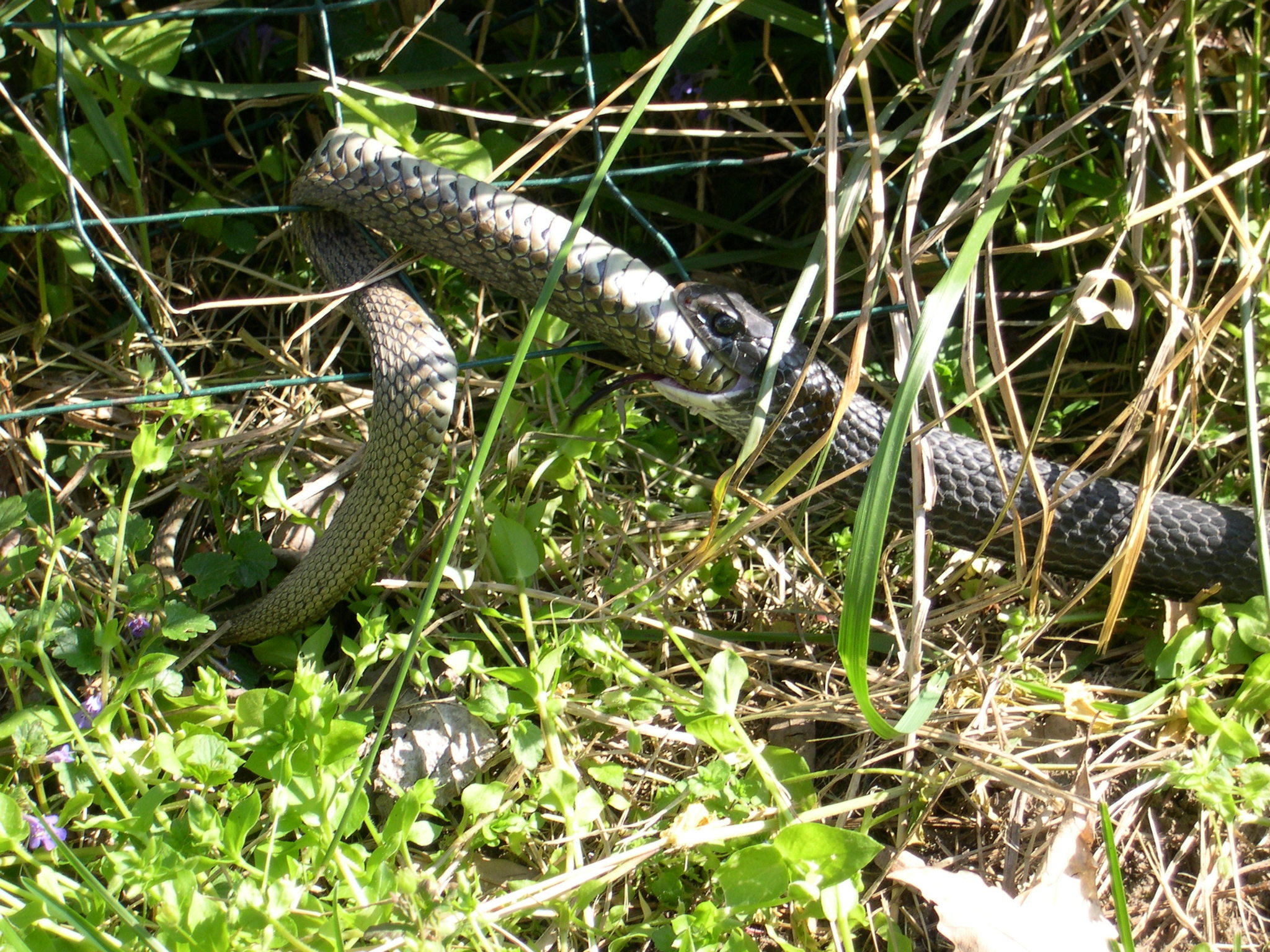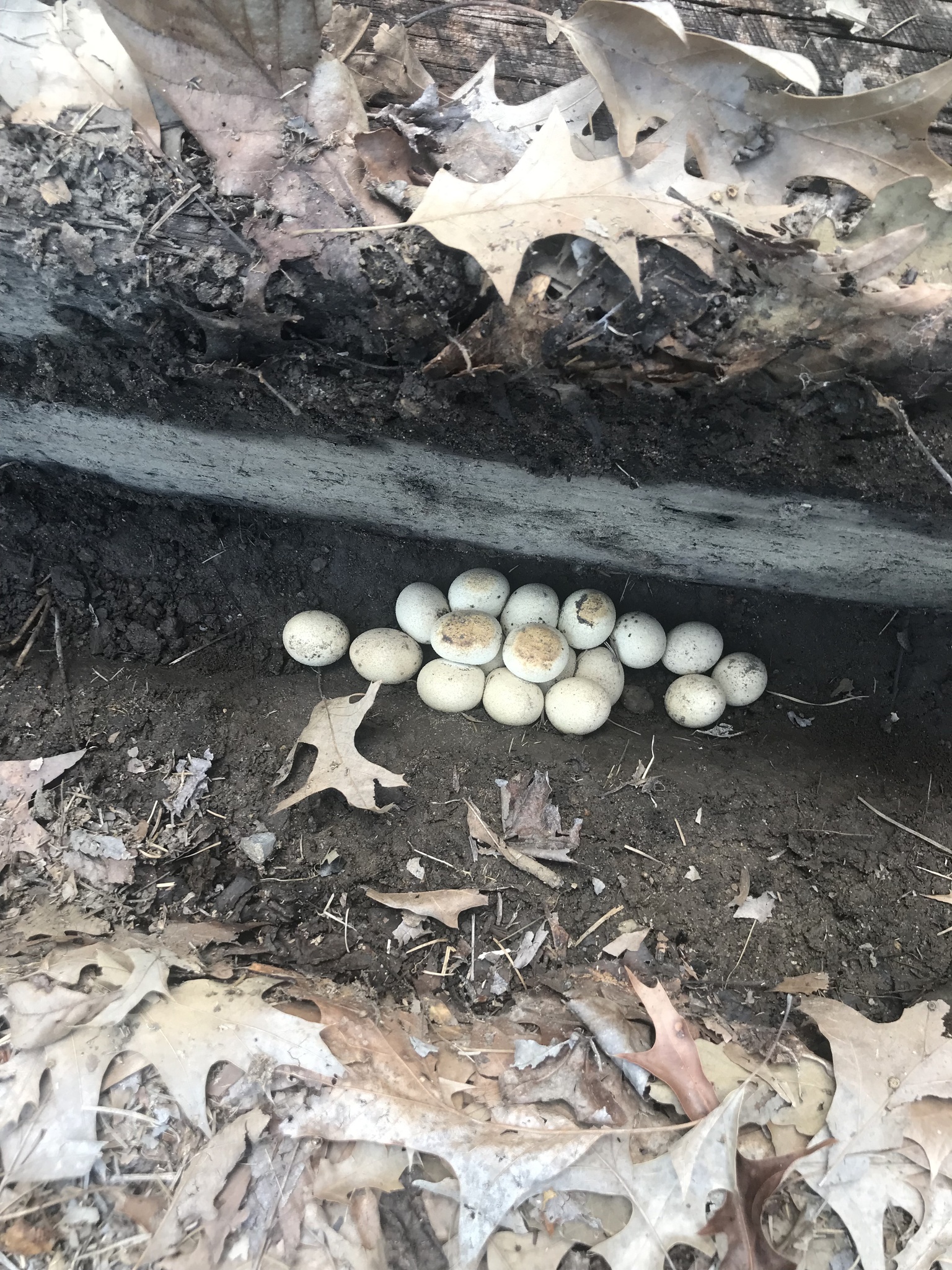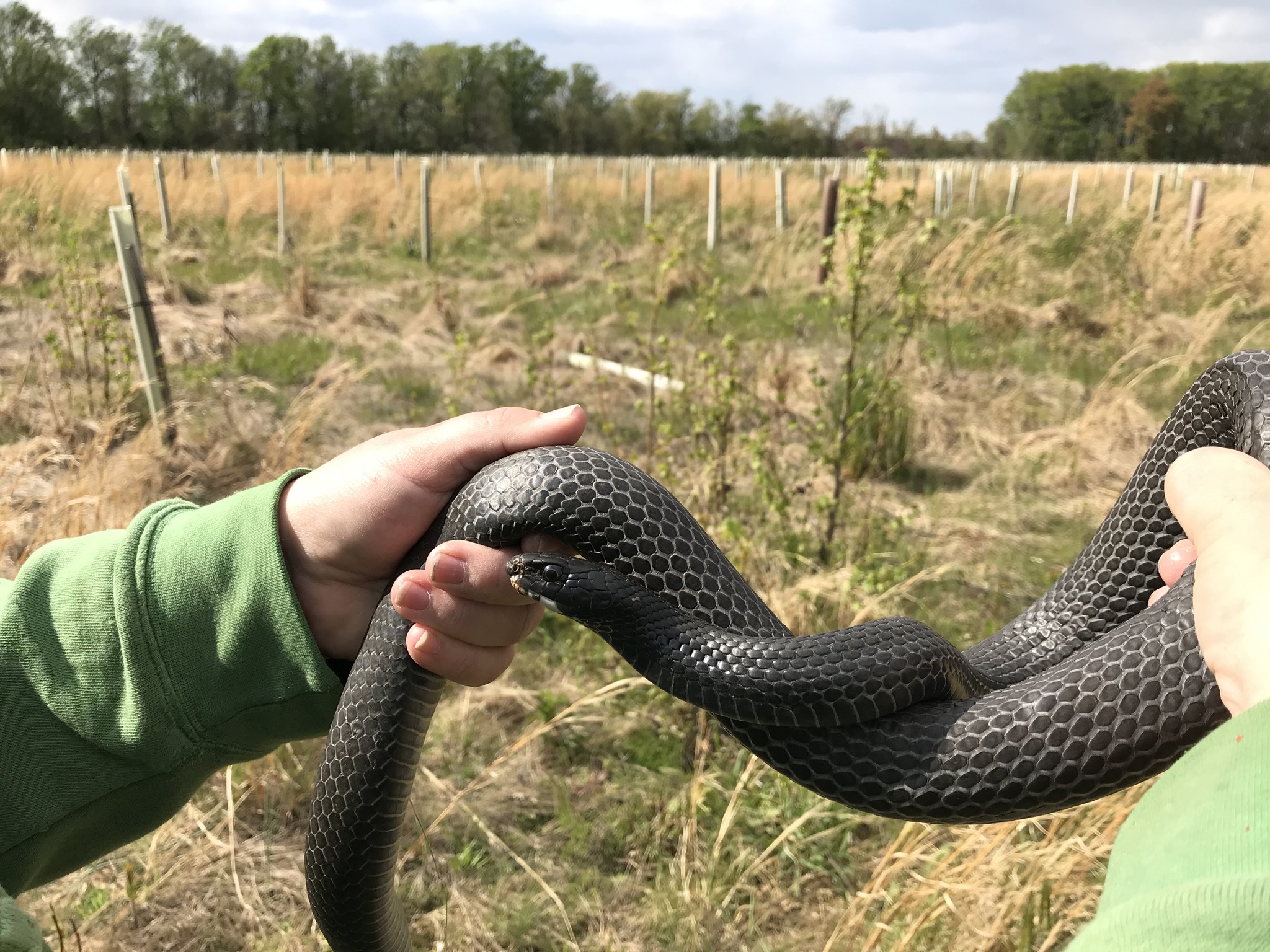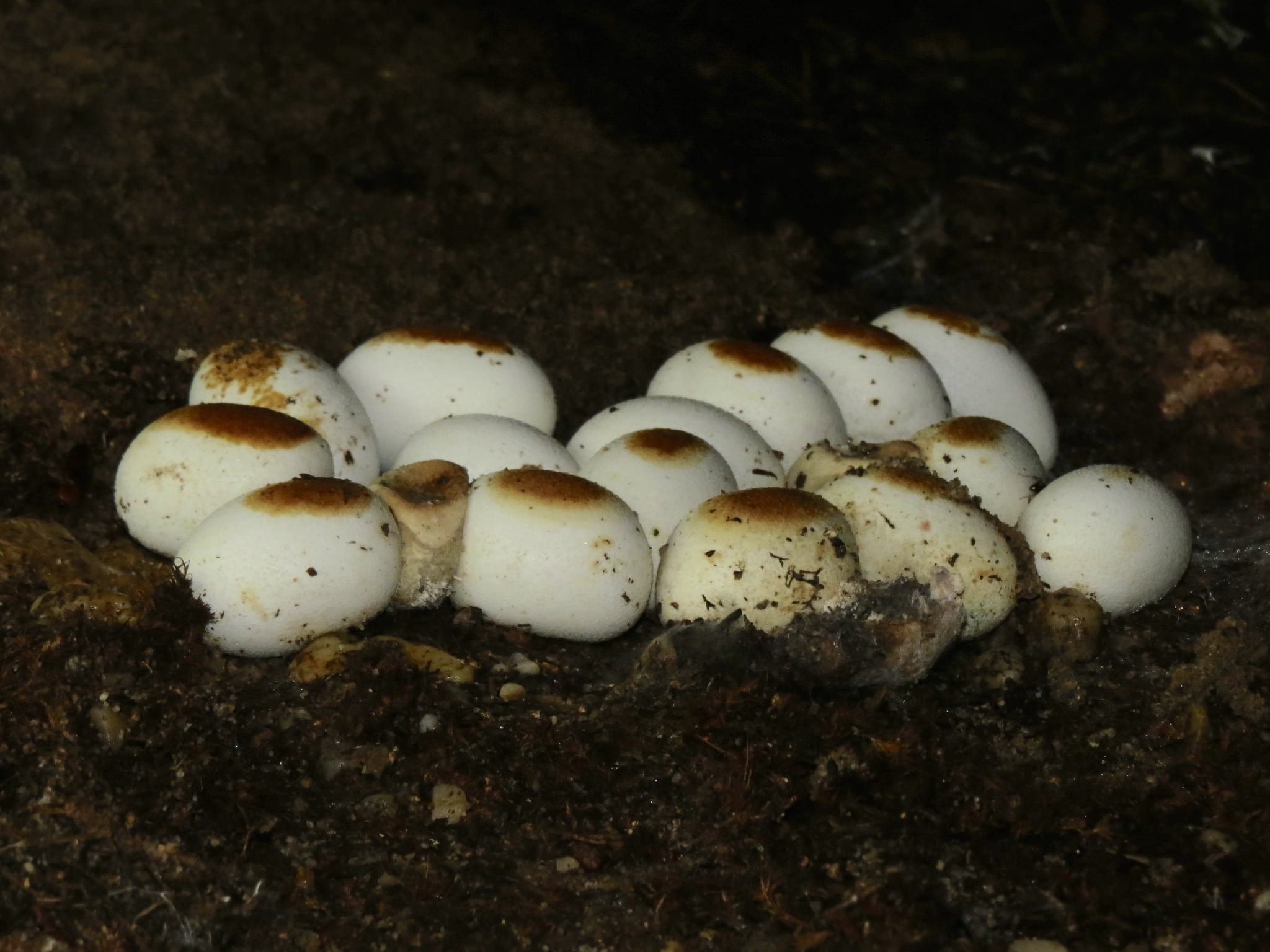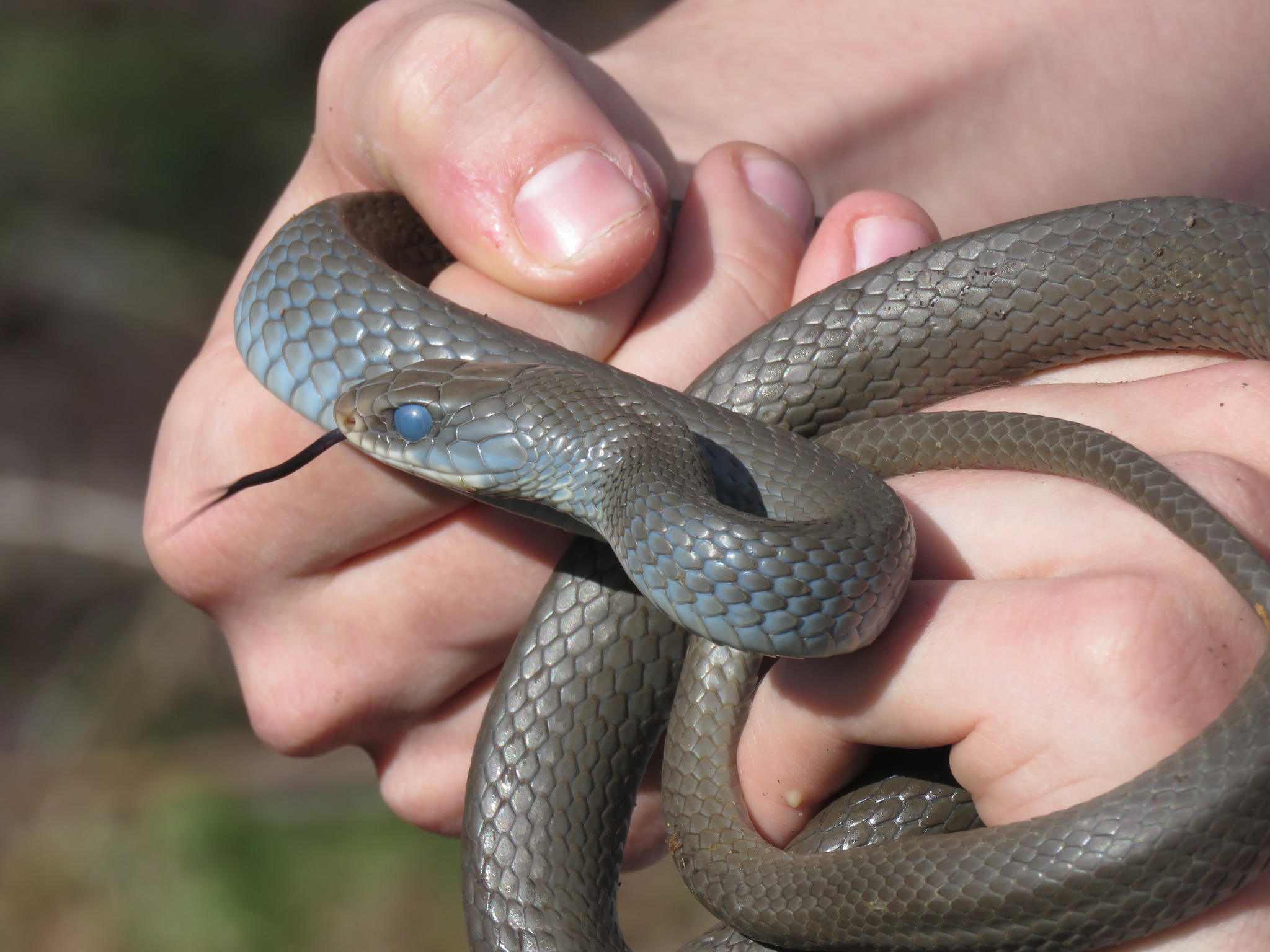Map Snapshot

























528 Records
Status
Northern Black Racer (Coluber constrictor constrictor) is a large, fast-moving snake species of a wide range of habitats and edges, including fields or meadows, rocky outcrops, open woodlands, and agricultural areas. Racers are quite adept and active generalist predators, and use their speed to overtake other snakes, as well as lizards, amphibians, insects, birds, and small mammals. Racers have a persistent habit of holding their head above the top of the vegetation, rather like a periscope, enabling it to spot predators or prey more effectively (Tennant, 2003). This attractive snake is found throughout Maryland.
Description
The sleek black dorsal scales are unkeeled in this species.
Seasonality Snapshot
Source: Wikipedia
| Northern black racer | |
|---|---|

| |
| Coluber constrictor constrictor, northern black racer | |
| Scientific classification | |
| Domain: | Eukaryota |
| Kingdom: | Animalia |
| Phylum: | Chordata |
| Class: | Reptilia |
| Order: | Squamata |
| Suborder: | Serpentes |
| Family: | Colubridae |
| Genus: | Coluber |
| Species: | |
| Subspecies: | C. c. constrictor
|
| Trinomial name | |
| Coluber constrictor constrictor | |
| Synonyms[2][3] | |
The northern black racer (Coluber constrictor constrictor) is a subspecies of the eastern racer (Coluber constrictor), a nonvenomous snake in the family Colubridae. Their geographic range extends from southern Maine to northern Georgia and westward to central Kentucky and eastern Ohio. Their occupancy is dependent on the availability of large patches of open habitats.[4]
Geographic range
[edit]Coluber constrictor constrictor ranges from Georgia, Alabama, and Mississippi in the south, to central New York, Vermont, New Hampshire, and Maine in the north, to Tennessee, Kentucky, and eastern Ohio in the west. At the southern end of its range, it overlaps with Coluber constrictor priapus, the southern black racer, and at the westward end it overlaps with Coluber constrictor flaviventris, the eastern yellow-bellied racer.[5]
Description
[edit]The Northern Black Racer is a long, shiny black snake known to reach 1,854 mm (6 ft). They have a plain white chin with most black/brown heads, with the center of the tail being plain white.[6] Upon hatching, the juveniles tend to have dark gray to reddish-brown dorsal patterns with a light gray to brown body that becomes occluded with age and the melanin becoming so abundant that all but the pale chin and brown snout are obscured.[6]
Habitat
[edit]Northern black racer are a terrestrial species and are found in open, grassy areas or in open forest adjacent to grassy areas. They prefer drier habitats. They will inhabit urban and agricultural areas, barrier islands, and grasslands in mountains. The Northern black racer will seek refuge under objects like logs, rocks, and other debris during the night or on cool days.[6]
Reproduction
[edit]Upon reaching sexual maturity, C. c. constrictor begins migrating to grasslands that support adult mating opportunities that occurs from April to October, with an unimodal or one peak during the late spring to early summer periods.[4]
Symbol
[edit]The northern black racer is the state reptile of Ohio.[7]
Gallery
[edit]-
Adult northern black racer, C. c. constrictor
-
Adult northern black racer, C. c. constrictor, in typical habitat
-
Adult black rat snake, Pantherophis obsoletus, often confused with the northern black racer
References
[edit]- ^ "NatureServe Explorer 2.0". explorer.natureserve.org. Retrieved 1 November 2022.
- ^ Stejneger L, Barbour T (1917). A Check List of North American Amphibians and Reptiles. Cambridge, Massachusetts: Harvard University Press. 125 pp. (Coluber constrictor, p. 79)
- ^ "Coluber constrictor ". The Reptile Database. www.reptile-database.org.
- ^ a b Dallas, Jason; Meshaka, Walter, E.; Delis, Pablo, R. (2021). "The Natural History of the Northern Black Racer (Coluber Constrictor Constrictor) in South-Central Pennsylvania". Journal of North American Herpetology. 2021: 29–33. doi:10.17161/jnah.vi.15172. S2CID 236276147.
{{cite journal}}: CS1 maint: multiple names: authors list (link) - ^ Mays, Jonathan D.; Todd, Charlie S. (2007-07-19). NORTHERN BLACK RACER ASSESSMENT (PDF) (Report). Maine Department of Inland Fisheries and Wildlife, Wildlife Division, Resource Assessment Section. Archived (PDF) from the original on 2021-06-06.
- ^ a b c Virginia Herpetological Society, https://www.virginiaherpetologicalsociety.com/reptiles/snakes/northern-black-racer/northern_black_racer.php.
- ^ "5.031 State reptile". LAWriter: Ohio Laws and Rles. Lawriter LLC. 2008. Retrieved 22 January 2011.
